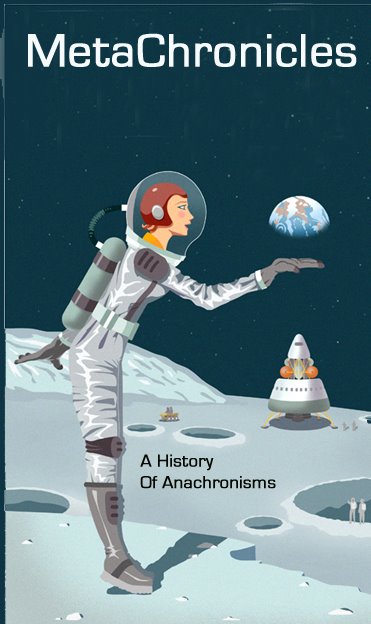.jpg)
The Difference Engine was written by William Gibson and Bruce Sterling and was published in 1990. This book definitely changed the course of science fiction by popularizing the idea of an altered Victorian world. It ushered in the era of re-imagined pasts.
The Difference Engine is considered by many to define the subgenre of Steampunk. The book takes place in an alternate Victorian era where Charles Babbage has perfected a computer one hundred years before it’s time. While there are references to the Babbage computer and various steam powered machines the real focus of this book is history and Victorian culture. Above all this novel is about politic. The Science Fictional what if’s in the book are mainly political : What if the British Empire had continued to thrive and grow dominant? What if Japan had opened international trade with Britain instead of the U.S.? What if Lord Byron became a great political power? It’s actually quite fun to compare this world to ours and all it’s might have beens.
I think I would have found this novel more compelling if there was more exploration of technology and mankinds relationsip to it. Instead the technology in this novel is really a very minor aspect.
The story follows three characters through this transformed Victorian London during an aborted uprising.
My favorite part is the last few pages, which follows the concepts of the novel to a strange conclusion.
.jpg)

8 comments:
Interesting. I would think that, if you're reimagining some point in the past that you would elaborate on how your changes (in this case, Charles Babbage's perfected, 100yr early computer) affected life in your world.
I would certainly like to pick this up, however, I worry that, since what compels me is really a side-note, I'll be left feeling 'ho-hum' about it.
Are there any other 'essential reads' for the steampunk genre or is that something you plan on tackling in future posts?
Thanks Brian. I'm being a bit subjective here and there are some really cool ideas in here but the book is too long and the writing feels uneven to me. Also, I'd been hearing the hype for this book for ages and was a bit let down.
I'll be posting lots more about books soon. I'd like to get the posting to once or twice a week.
I read this when it first hit paperback, and my assessment of the book is similar to yours. I don't know that either one of these writers are really good at writing characters, and I wasn't really caring about anyone in this book. But then, this was--could it really be 18 years ago? That couldn't be right, could it?
I used to subscribe to Isaac Asimov's Science Fiction Magazine when I was a kid, and I remember when they first serialized Count Zero in that magazine. It was like nothing I'd ever seen, and I think it went right over my head at the time. I must've been 12, maybe 13?
Reread Neuromancer (actually listened to it on audio) recently, and I'd forgotten how hipster serious it all was. Thank god For Neil Stephenson.
Steampunk as a science fiction genre seems like a novelty to me, since the basic premise has been pretty much covered, but as an aesthetic I can see it sticking around for quite a while. All these steampunk inspired gadgets and images have more interest to me than any story that I've read with the theme. But I'm sure somebody will put a twist on it.
Since the genre is focused on a romance of the aesthetics of technology rather than the technology itself, it seems to lean more towards fantasy than science fiction, though that distinction itself is pretty buttery. But it's definitely a romantic genre, and the physics and actual science of the technology is much less of an issue than the way it all looks and moves.
Thanks for the thoughts Jed. I was talking to a friend recently who said about William Gibson" If not for the ideas I wouldn't read his books," and thinking about it I tend to agree. Hi books have lots of cool ideas that make reading them worthwhile. With The Difference Engine I think I was already very familiar with the concepts and the only character I had any true empathy for was only in the first quarter of the book.
The romantic angle is more or less where I'm coming from in this blog, the side of technology I want to explore. And I want to distinguish that from the Futurist religious fervor toward technological marvels. The literary relevance is also of interest to me.
I think a lot of science fiction, what they call, "hard" science fiction especially is way too literal. The focus is so much on the technology (which dates quickly) that they forget to focus on the ideas. Phillip K. Dick is one of my favorites because the technology is at the service of the ideas, rather than the focus. The social environment in his stories is also very important, but not always by necessity technology based. So I think you can write sci-fi that isn't so literal but also not necessarily romantic. I tend to like both kinds when done well.
Dune is a great mixture of both, and a favorite in that general area.
And I didn't mean to suggest that good steampunk books haven't been written, just that I haven't discovered them yet.
Dune is one of my favorites too. Amazing how immediate it feels today in part because of the Islamic elements. I also love the galactic feudal system. An amazing book. I'll try to offer books of interest here. I'll also be covering other eras besides Victorian. WW1 and WW2 based Sci-Fi is in some ways even more interesting to me.
What a great resource!
viagra
excellent articles, useful for me. keep writing and happy blogging.
paxil
Post a Comment